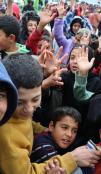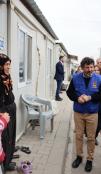Mobile Health Services Reach Most Vulnerable Working In Agriculture

The European Union and the Ministry of Health extend the services provided under the Sıhhat project to reach out to the most vulnerable people: seasonal migrant agricultural workers while hiring doctors and nurses with foreign origin such as Syria, Yemen and Palestine who work with their Turkish colleagues.
Story and Photos: Berna Çetin
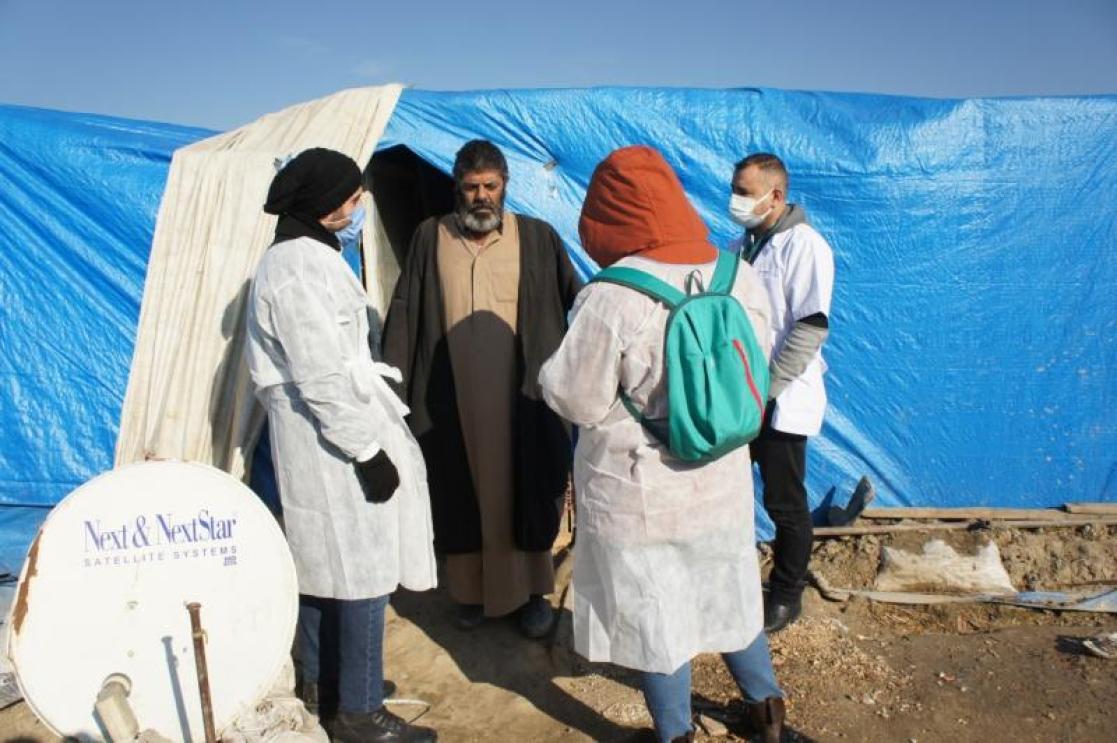
It is an unusually cold day for İzmir. Doctors, nurses, social workers are preparing to leave. They check their equipment, documents, and brochures, put on their uniforms and meet in the front of the Migrant Health Center. They are getting ready to meet with people in rural areas who have limited access to health services. Among them, the seasonal migrant agricultural workers.
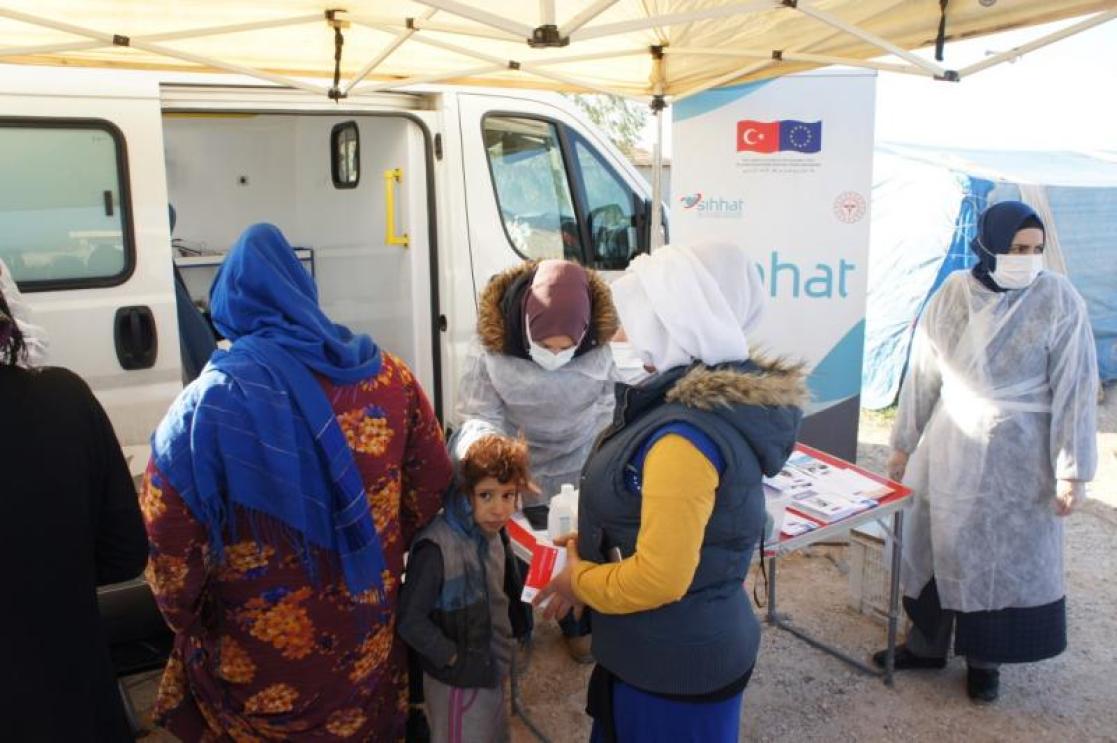
“They work in fields and live as a small group far away from the city center so they don’t have to learn Turkish which makes it difficult for them to explain when they have health issues. We can say that they are the most vulnerable of the refugee community. They don’t speak the language and they are really poor.” says Valid İbrahim, a Syrian doctor who works for the Sıhhat project, financed by the European Union and implemented by the Ministry of Health. The Sıhhat project does not only reach out to patients through migrant health centers and relevant services but also hires Syrian medical staff so they can practice their profession and contribute to the wider community. So far, a total of 4000 healthcare workers have been hired under the project.

The mobile health services started 10 months ago. A team of doctors, nurses and social workers visit the people regularly in remote areas who live in makeshift accommodation and tents. They ensure people with diseases are followed up and treated. Once the mobile clinics pull up and start setting up, people slowly gather around. Soon enough, we see how important this service is, as a sick boy with anaemia and eight women are immediately taken to hospital on the spot for further tests. The team will receive the results and inform patients if any treatment is needed.
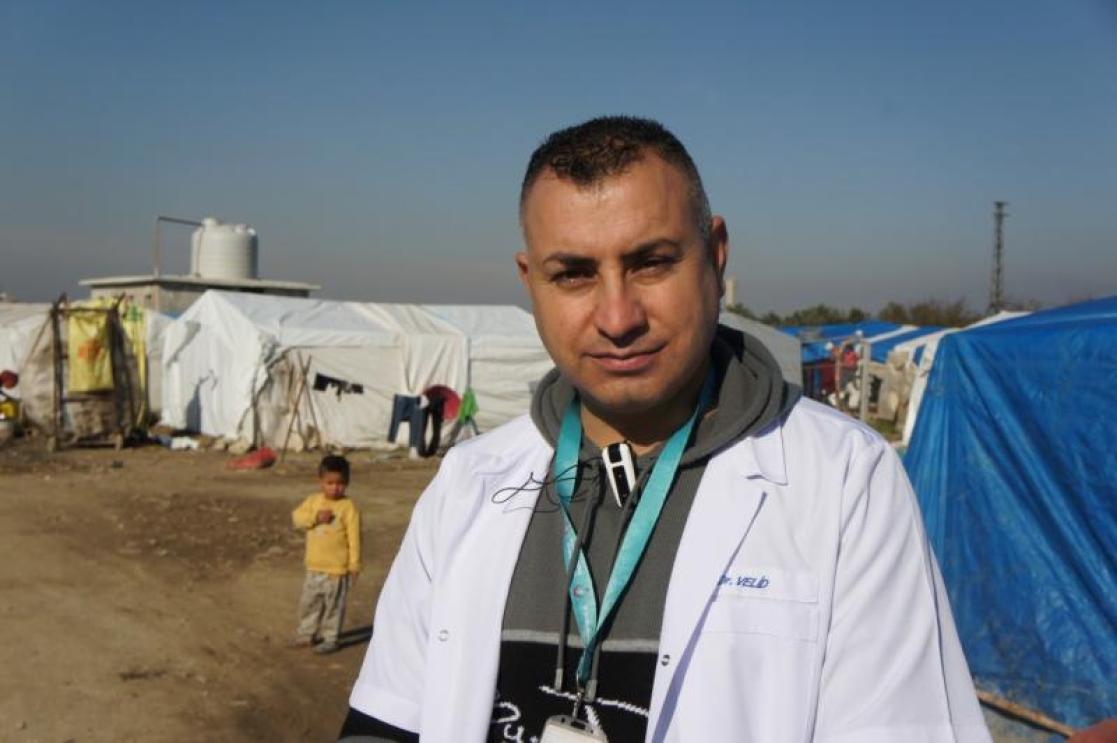
While the sun peaks, the place is livelier: someone’s blood pressure is taken, a mother is having her baby vaccinated, someone else is seeing the doctor as a follow up from their last visit, children are coming out of their tents and taken to visit the doctors… “Children, Covid and maternal vaccines are our priority,” says Doctor Hamza Alfahir. “They are called seasonal agricultural workers but they actually live here in all seasons. I know because we’ve been visiting them every month for the last 10 months. This service is very important for them, we do examinations, give them vitamins, make their hospital appointments.” Hamza Alfahir is from Yemen and arrived to Turkey after passing an exam to study in Turkey in 2012. “I first went to Turkish courses, then took the university exam and studied at the Medical School of Malatya University. I applied to the Sıhhat project after I graduated and have been working since February 2020.”
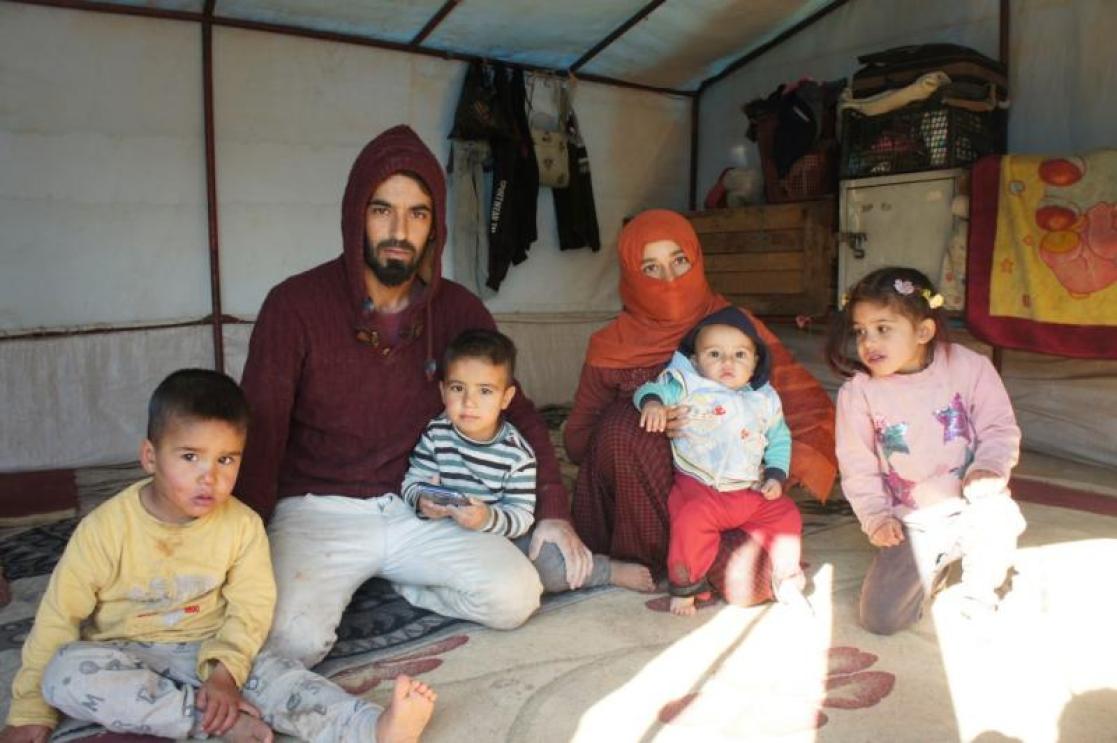
Fatma Nur Dural, a social worker on the other hand is focusing on other issues: if children are able to go to school, if anyone needs legal advice, or is able to receive needed services. She describes her job difficult but rewarding, as she is able to help the most vulnerable people.
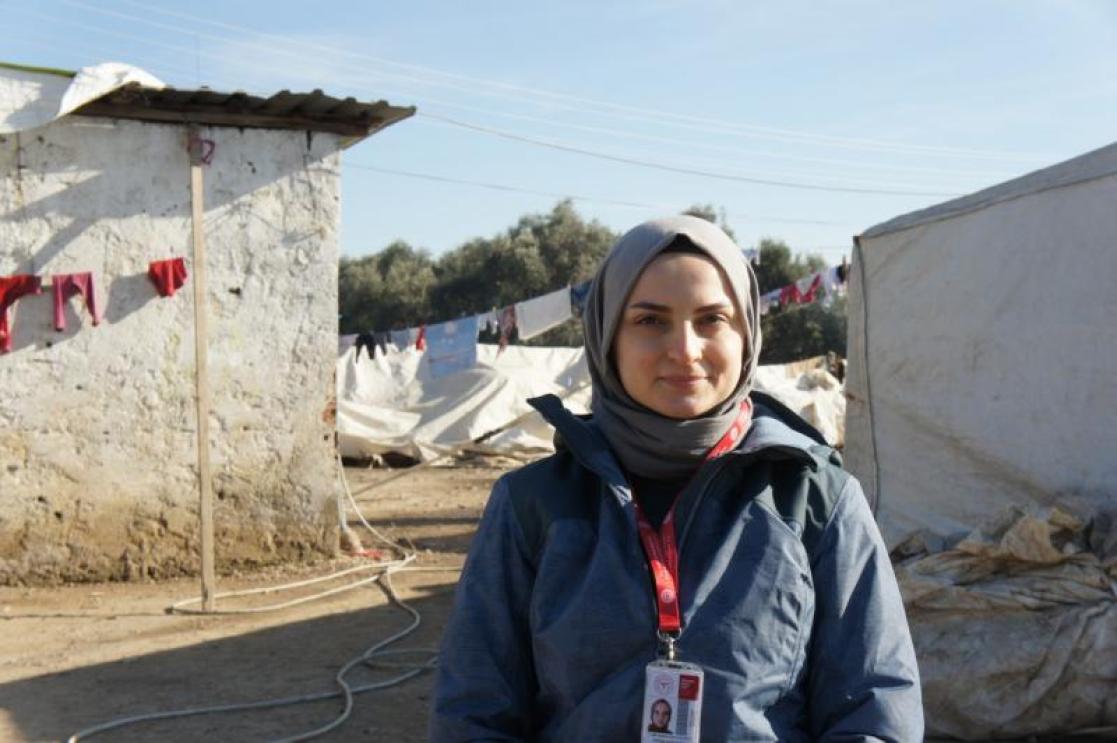
Wandering around the tents, time passes quickly. When the sun sets and the cold breeze arrives to the fields, people quietly go back into their shelters and gather around the heather. Only children have the energy to run around and get to know people who arrive once a month and check up on their health. Fatma Nur Dural is right; it is a difficult task but very rewarding once seeing healthy children playing and saying cheerful good byes until next month...
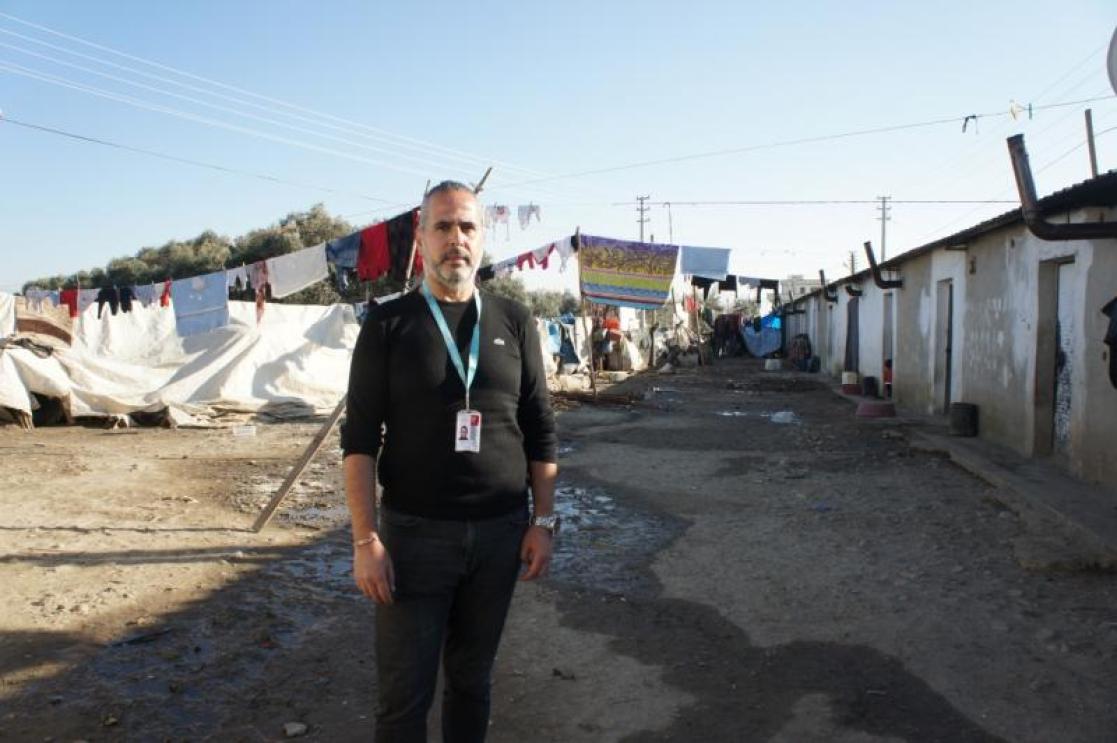
About the Sıhhat project
Under the project that started in 2016, 181 Migrant Health Centers opened in 29 provinces that host refugees in Turkey. Ten Community Mental Health Centers opened/supported in 9 provinces where 4,000 healthcare workers are employed.
In addition to the services provided in the centers, general health screening, mental health services, reproductive health, pregnant follow-up, heel blood collection for infants, immunization, filiation, etc., are also provided to people who have difficulties in accessing health services due to their location in rural areas. In addition to this, outreach activities and health literacy trainings are also promoted via these mobile health services.
The Sıhhat project aims to increase the health literacy of migrants and improve their access to healthcare services. As of the end of September 2021, the number of general examination services in MHTCs (Migrant Health and Training Centers) is over 3,5 million (3,825,467), and mobile health services were delivered to 78.394 patients between January and October 2021. The number of migrants reached through outreach activities is 37,476 and health literacy trainings is 6259. In the same period, the number of scans made with mobile cancer screening trucks is 136,393.
For more information about the project, visit: https://www.avrupa.info.tr/en/project/improving-health-status-syrian-population-under-temporary-protection-and-related-services




